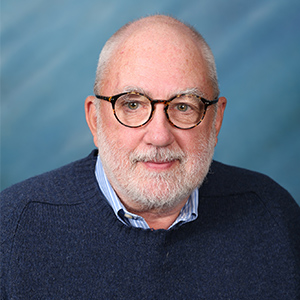By Ripon Media in College Days on November 21, 2016

By: JJ Grinde
Ripon College Trustee John Wolfe ‘69 firmly believes that his time at Ripon provided him with the necessary skills to build both a life and a career that he is passionate about.
“What I learned at Ripon was…how to think about a problem, how to work with other people, how to go about marshaling resources and applying them to something. To me, that’s really the essence of a liberal arts education.”
Born in Iowa, the current Trustee of the college spent his formative years growing up in Green Bay with his parents and sister. He attended Green Bay West High School before matriculating to Ripon. Not knowing his career would be in the sciences, he majored in philosophy.
“Partly, being a philosophy major was a default major because I didn’t know what I wanted to do,” he said.
In the midst of the Vietnam War, Wolfe participated in Ripon’s ROTC program and spent nearly three years stationed in Germany following graduation. Still unsure of what he wanted to pursue after the war, Wolfe remained in Europe.
“I put my thumb on the road and went hitchhiking around Europe for about a year,” Wolfe said.
He remembered Spain particularly because Franco was still in power while he visited.
“In that time, it was a very strange European country with about half the males between eighteen and fifty in uniform of some sort,” he said.
After Europe, Wolfe moved to Cambridge, MA with a number of Ripon friends while he sorted out what he wanted to do.
“I had no intention of going into medicine then. I took the law boards and did pretty well at them. I thought about it, but just decided that it wasn’t what I wanted to do,” said Wolfe.
His interest in medicine grew. Knowing that he needed more of a scientific background, he spent a year taking undergraduate science courses at Harvard. Next, he moved to Philadelphia to continue undergraduate science courses at the University of Pennsylvania. He eventually settled on veterinary medicine.
“You’re doing internal medicine, ophthalmology, dermatology, surgery. Kind of everything. The irony of it is that I’m so specialized now that I’m lucky I can get a job,” he said.
After two years of science coursework at Harvard and Penn, Wolfe matriculated to the combined DVM-PhD program at the University of Pennsylvania. He began thinking that he would be a clinician first and a researcher second, but that quickly changed.
“Two months into the first semester, I realized I was a lot more interested in the science than in memorizing lots of facts,” said Wolfe.
Upon completion, he undertook a postdoctoral fellowship at the Memorial Sloan-Kettering Cancer Center in New York City, and then returned to Penn on faculty. Compared to the majority of his classmates, Wolfe was older. When asked if students should take a year off following graduation, Wolfe emphatically replies:
“Absolutely! Yes! Absolutely. When I first started getting interested in comparative medicine, I did two more years of undergraduate coursework. It hasn’t adversely affected my career at all.”
Rather than feeling behind the younger students, Wolfe saw that many of the younger students wished they had done something similar before starting their academic careers.
“I think the example is Malia Obama [taking a year off before attending Harvard]. I think that’s perfect for her to do that, because there’s no rush. Everybody feels, ‘I need to go to this school or that school and do this,’ but you know what? There’s time to do these things, and a year, once you’re part way into your career, a year isn’t going to mean anything,” said Wolfe.
Wolfe has now become a bona fide scientist, saying, “My basic research is gene and stem cell therapy for childhood brain diseases.” What he finds most satisfying about the work is “the intellectual curiosity of something that you don’t yet know.” While there are difficulties entering the scientific world, Wolfe is nevertheless optimistic about the future of science.
“It’s a wonderful time to be going into the biological sciences in any fashion, because there are so many tools that you can do so many things with now that you didn’t have before,” he said.
One of Wolfe’s passions beyond the laboratory is sailing. He has sailed to Tonga, from Gibraltar in Europe to St. Thomas in the Caribbean, and embarked on a five week voyage from Tanzania to the Auckland Islands and up the New Zealand coastline. His work as a scientist has taken him around the world to be hosted by other scientists and present his work. Some of his favorite places are:
“Italy, Paris, and Japan. We [Wolfe and his wife, Ruth] spent quite a bit of time in New Zealand and Australia.”
His wife, a retired academic psychiatrist from Penn, worked as a locum tenens physician at the southern tip of New Zealand for a year.
“We spent Y2K in the first time zone, and that was a wonderful experience,” he said.
When Wolfe hangs up his lab coat and retires from the laboratory, he will be moving to a farm on an island off the coast of Maine. He and his wife have made an effort to meet as many of their neighbors as possible.
“There’s a very high concentration of artists, from painting, sculpting, and crafts. There’s the famous Haystack School of Crafts. A lot of people with really interesting backgrounds and careers are around us,” said Wolfe.
While he never envisioned that he would end up as a scientist, or the twists and turns that would come along with it, Wolfe is nevertheless happy with the winding route that his life has followed.
